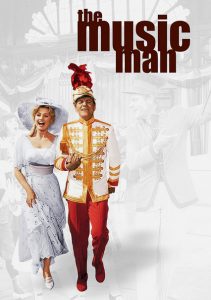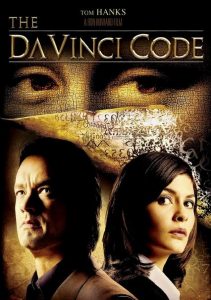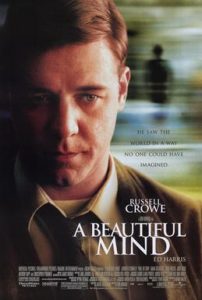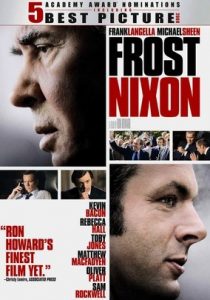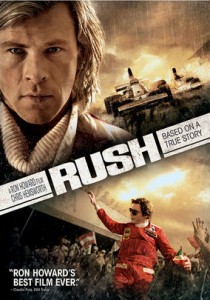The Music Man-1962
Director Morton DaCosta
Starring Robert Preston, Shirley Jones
Top 250 Films #192
Scott’s Review #929
Reviewed August 9, 2019
Grade: A
The big-screen offering of The Music Man (1962) is based on the 1957 Broadway musical of the same name, written by Meredith Wilson, and one of the most upbeat Hollywood renditions of stage productions.
Featuring talented stars like Robert Preston and Shirley Jones, the former appearing in the stage version, the film was one of the biggest hits of the year to be watched and re-watched whenever the mood strikes for sing-along tunes and a cheery story told from a purely Americana viewpoint.
In the summer of 1912, deceitful traveling salesman Harold Hill (Preston) arrives in River City, Iowa, intent on swindling the town folks out of their money. Masquerading as a traveling music instructor, he plans to trick parents into enrolling their kids in a marching band and selling the instruments.
He uses scare tactics to incorporate fear into the gullible parents and romantically sets his sights on the local librarian, Marian (Jones). Marian, distrustful of men, slowly falls in love with Harold, and his plot is eventually discovered, resulting in a witch hunt.
Of the plethora of musical releases bombarding Hollywood throughout the 1950s and 1960s, The Music Man arguably possesses the catchiest tunes and spirit.
It is impossible not to hum along to or tap one’s foot to the songs, which stick in the viewer’s heads for days after watching the addictive production.
My favorites are “Seventy-Six Trombones”, “Gary, Indiana”, and “Pick-a-little, Talk-a-little” as each has distinctive melodies, rhymes, and rapid-fire dialogue.
The soundtrack always pleasures the gloomiest days and speaks volumes about the legs the musical contains.
Besides the tunes, The Music Man’s best aspect is its romantic storyline. Preston and Jones’s chemistry is complete, and they are perfectly cast.
The studio wanted “a big name,” so Preston nearly didn’t make the cut, which would have been a shame. By infusing life and humor into a character who could be perceived as dastardly, he tips the likability scale and makes the character the hero.
Jones is a treasured singer and is just as good as Preston, playing the mousy and serious Marian. Her “slice of the Midwest” innocence and blonde hair portray her as corn-bred, but the actress makes the character work for her. Together, the duo is sensational.
The best sequence in which the pair appears is the remarkable “Marian the Librarian,” a sneaky and naughty number—the most adult rendition. Their mutual attraction becomes evident, and the film brings the audience to its knees at this moment.
The musical is purely a slice of Americana, which may limit its popularity across oceans, but it works and feels authentic. This is no surprise, given that composer Willson hails from the Midwest.
With an uplifting message and a nostalgic ode to a country once filled with promise and innocence, the film is arguably even more critical in today’s divisive environment.
The piece wisely does not celebrate small-town cliches but instead offers a wholesomeness. The townsfolk sing and dance together and celebrate life as a neighborly bunch; this nuance is refreshing.
The supporting cast adds flavor and comedy to the production. A very young child actor, soon-to-be-famous director Ron Howard, offers a heartfelt performance of “Gary, Indiana.”
Character actors Paul Ford and Hermione Gingold offer delightful hysterics as Mayor Shinn and his wife, Eulalie.
Oklahoma (1955) and Picnic (1955) are thematically similar, at least from geographical and time-period perspectives, but distant relatives in mood and drama. All three could be watched in one marathon weekend.
The Music Man (1962) provides the most warmth and, at its conclusion, will fill even the most stone-faced individuals with beaming smiles.
The film version is a perfect example of a stage musical successfully brought to the silver screen with energy and gorgeous singing and dancing.
Oscar Nominations: 1 win-Best Picture, Best Scoring of Music-Adaptation or Treatment (won), Best Sound, Best Art Direction, Color, Best Costume Design, Color, Best Film Editing
